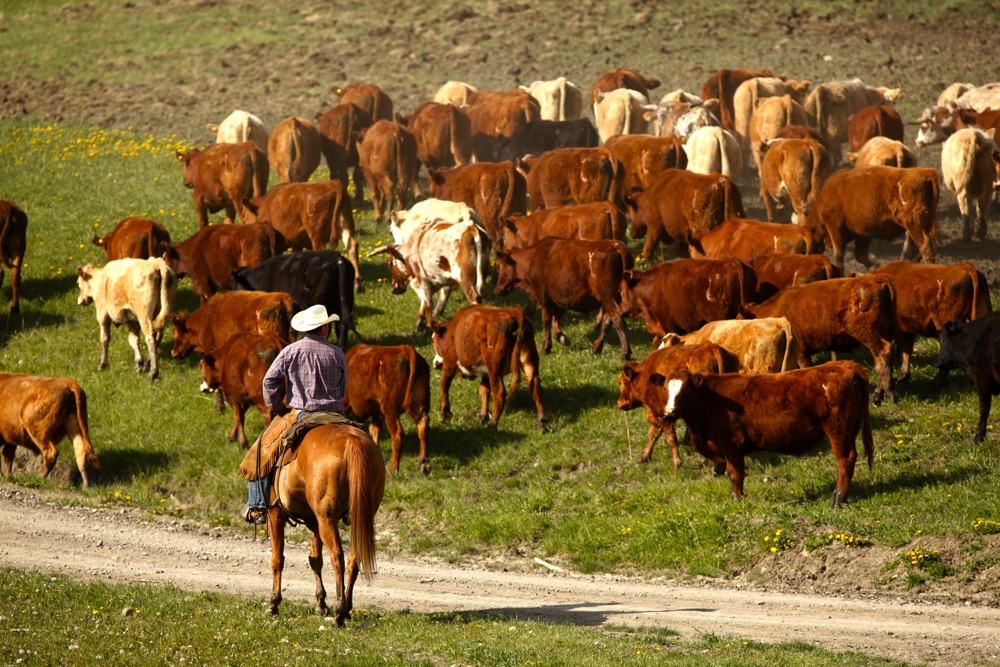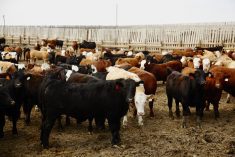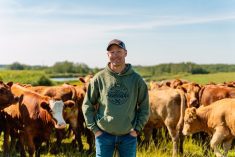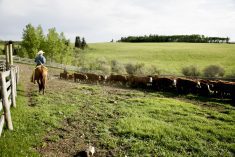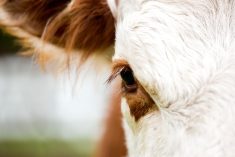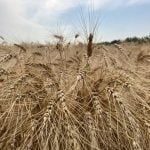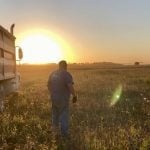As we settle into the cool fall temperatures, with weaning season well underway on our operations, summer now seems a distant memory. However, the effect of this year’s devastating drought continues to be very challenging for producers in the West. While the rain in August and September across the Prairies did provide some relief in areas, which could help producers maintain more cattle than originally thought, many may still need to make difficult decisions to downsize the herd to meet feed supplies.
Producers are still facing water challenges, reduced grazing capacity and increased costs to source winter feed. The drought situation remains stressful and there is a need for better weather conditions to replenish water sources and subsoil moisture. However, as always, we are resilient and cattle producers continue to work hard every day to make the most of the situation.
Read Also
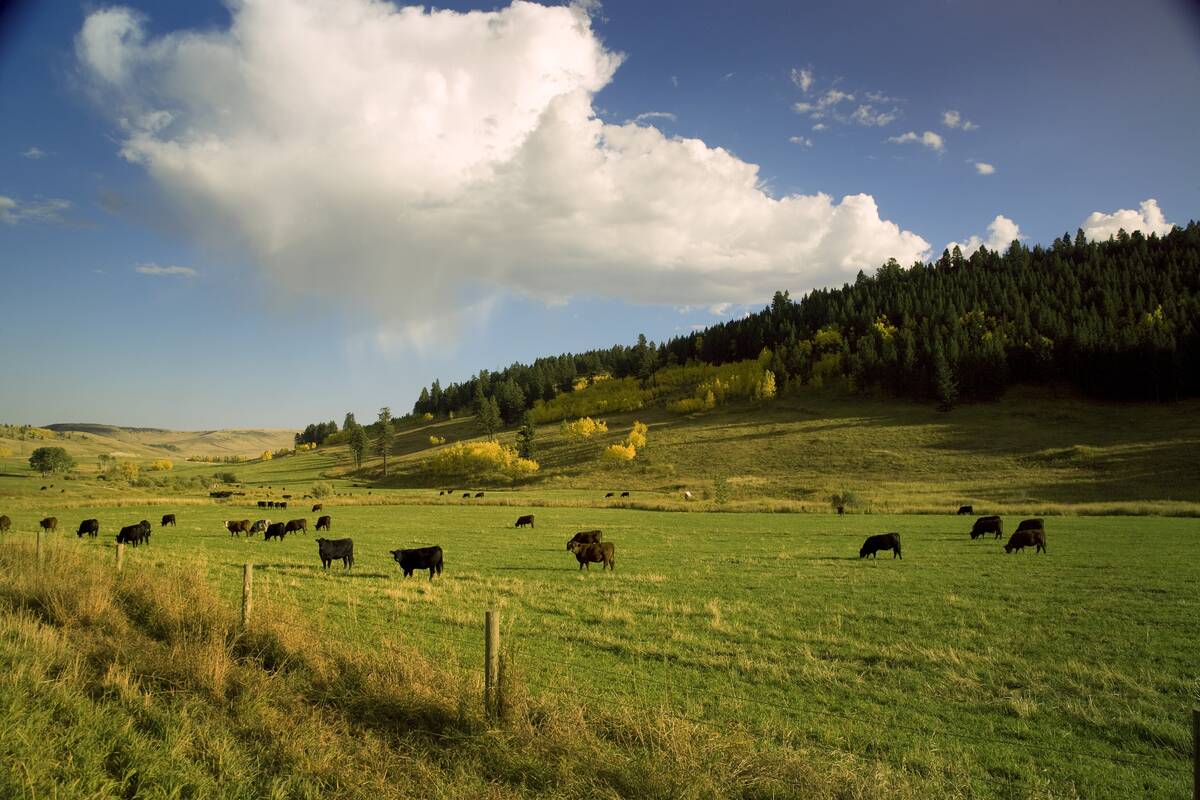
The Canadian Cattle Association’s international advocacy efforts
Global ag policies affect Canadian food policy, so the Canadian Cattle Association participates in international and domestic forums
Beefed-up AgriRecovery programs from the federal and provincial governments will provide some support for winter feeding costs, improving access to water and impacts from wildfires. Eligible costs will be supported on the 60-40 cost-shared federal-provincial basis outlined under the Canadian Agricultural Partnership. Program details vary from province to province, so I encourage you to check to see how the program operates in your area.
Another positive is that so far cattle prices have not dipped significantly and have resembled similar prices to last year for calves/feeders. In response to the drought early on in the summer, there were additional sales held for breeding animals and more were marketed over the summer than in a typical year. However, rain finally began to fall across much of the Prairies over the later part of August, which seems to have moderated some of the culling pressure.
Developing creative solutions on the farm is exactly why each year for more than two decades we have recognized the outstanding environmental practices of Canadian operations through the Environmental Stewardship Award (TESA). This year we celebrated the 25th anniversary of TESA. This award has stood the test of time and the legacy and intention of the award remain as relevant today as ever. In early September, CCA announced the Manning Family Farm, in Falmouth, N.S., as the recipient of TESA for 2021.
The Mannings are leaders in their community and the Canadian beef industry with their outreach efforts to the general public and their open-door policy to educate consumers wanting to know more about how beef cattle are raised.
The farm is owned and operated by Dean and Catherine Manning. They left their off-farm careers about 25 years ago to return to the second-generation family farm where Dean was raised. They’ve carried on and expanded the conservation practices that Dean’s parents, Malcolm and Gail, put in place, creating an efficient and profitable mixed farming operation that works very much in harmony with the environment. Congratulations, Dean and Catherine, and well deserved.
I always like to look to the future of our industry, and I am very proud of the outstanding young people who participate in CCA’s Cattlemen’s Young Leaders (CYL) Mentorship Program. In September we announced the 16 finalists for the 2021-22 program year.
The final selection took place through a virtual competition where 23 impressive semi-finalists from across Canada competed for a spot in the CYL program through judged discussions. The finalists receive a $2,000 travel budget and are paired with a hand-picked industry leader for a nine-month mentorship in their specific area of interest.
Through the virtual selections event, semi-finalists participated in roundtable discussions by breaking into smaller virtual meetings. Each virtual meeting was facilitated and judged by CYL Foundation Partners — Cargill, McDonald’s Canada, MNP and New Holland, as well as Gold Sponsors — Farm Credit Canada, RBC Future Launch and Alltech. Semi-finalists put their skills to the test through thought-provoking discussions about timely topics in the beef industry such as advancements in sustainability; communicating the positive contributions of the beef industry; farm operation benchmarking and financial skills; farm equipment right-to-repair legislation; the economic, social and environmental return of ag businesses and much more.
On behalf of the CCA, I congratulate all semi-finalists who did an exemplary job showcasing their knowledge and passion for the Canadian beef industry. The 2021 finalists included: British Columbia: Julia Flinton (Williams Lake), Amanda Miller (Lumby), Janine Rubin (Rose Prairie); Alberta: Diane Van Essen (Picture Butte), Nikki Olson (Red Deer County), Rheanne Ritchie (Didsbury), Laura Macrae (Westlock), Tia Schram (Bruderheim), Melissa Gablehaus (Rochester); Saskatchewan: Brock Larson (Simmie), Holly Sparrow (Vanscoy), Logan Houff (Eston); Ontario: Emily Potter (Earlton), Laura Scott (Oxford Mills); Québec: Victor Drury (La Pêche) and Newfoundland and Labrador: Darren Dinsmore (Goose Bay).
I have been fortunate to have mentored participants in the program and know first-hand the relationships built, knowledge gained and skills developed through CYL. These experiences will have a positive impact on participants for years to come.

